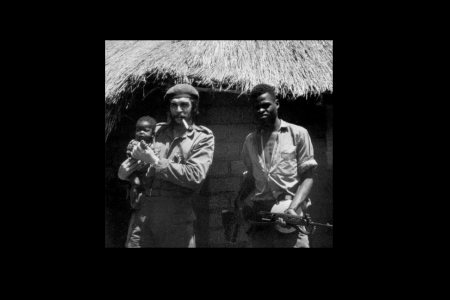 Anonymous/Museo Che Guevara
Analysis
Anonymous/Museo Che Guevara
Analysis
01/25/2021
Yann Santin
Operational partnerships between two organisations are a practical approach to humanitarian responses. MSF considers such partnerships when the objective it is pursuing in a country is similar to that of an existing national organisation, and when there is potential for synergy between these two entities. I would like to take a bit of a detour by looking at an experience that is in some ways similar: when Che Guevara tried to lead the revolution in Congo - Zaire by supporting the organisation of the guerrilla movement in the east of the country.
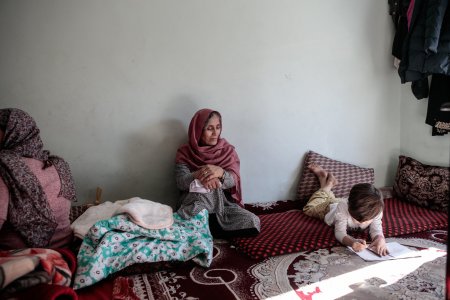 Sandra Calligaro
Analysis
Sandra Calligaro
Analysis
12/07/2020
Fabrice Weissman
The May 12th massacre at the MSF-supported maternity hospital in Dasht-e-Barchi (Afghanistan) raises, yet again, the question of our limits with regard to risk. What is an acceptable level of danger for humanitarian aid workers? How do we set limits? Why would MSF decide to leave Kabul but remain in Herat, for example, or leave Afghanistan but remain in Niger, Burkina Faso, Mali, or Somalia, where the teams also face extreme danger?
 Taimy Alvarez/MSF
Opinion
Taimy Alvarez/MSF
Opinion
11/18/2020
Natalie Roberts
The benefit of the vaccine is only real in the context of a rational and comprehensive biomedical, social, political and economic response, adapted to the local assessment of the health crisis and its impacts.
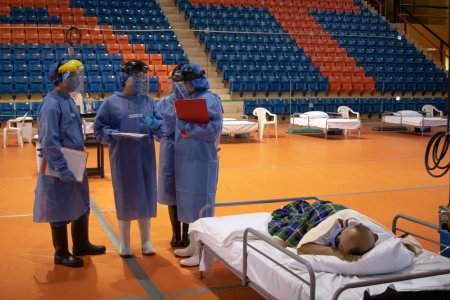 MSF/Arlette Blanco
Review
MSF/Arlette Blanco
Review
11/20/2020
Michaël Neuman
Natalie Roberts
After a few months of respite the coronavirus epidemic has resumed its spread. With the second wave becoming a reality in many European countries, the Crash team decided to share some recent reading on the biomedical, political and social aspects of the pandemic in an attempt to shed some light on this tragic Season 2. As in previous editions, some articles are in English and some in French, and they are taken from both mainstream and specialist sources.
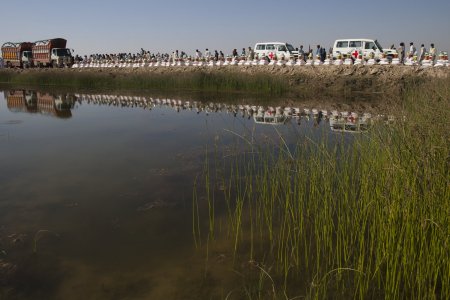 ICRC/MATTHYS, Olivier/2011/ V-P-PK-E-01284
Analysis
ICRC/MATTHYS, Olivier/2011/ V-P-PK-E-01284
Analysis
11/18/2020
Joël Glasman
The principle of impartiality, which is often reduced to a principle of mathematical distribution, was originally coined by the International Committee of the Red Cross (ICRC), at that time on a quest for legitimacy. However, reducing impartiality to a resource distribution algorithm strengthens the overarching position held by non-territorial organisations. This is the theory put forward by the author in his latest book.
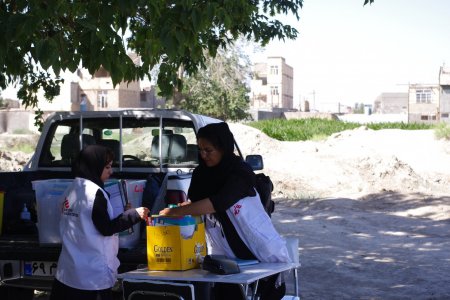 MSF
Analysis
MSF
Analysis
09/18/2020
Fabrice Weissman
On the 31st January, a symposium was held at Sciences Po in support of Fariba Adelkhah and Roland Marchal, researchers at Sciences Po's Center for International Research (CERI) who were arrested in Iran on June 5, 2019. Roland Marchal was released on 20th March 2020 in exchange for an Iranian engineer detained in France. On 6th May Fariba Adelkhah was sentenced to 6 years imprisonment for "propaganda against the political system of the Islamic Republic, and collusion to undermine national security". The researcher was offered conditional release on condition that she terminates her research, but she refused.
The symposium brought together diplomats, journalists, humanitarians and researchers, with the aim of "nourishing reflection about prisoners and hostages, from a political, legal and ethical point of view". Fabrice Weissman presented the experience of Médecins Sans Frontières in the face of kidnappings.
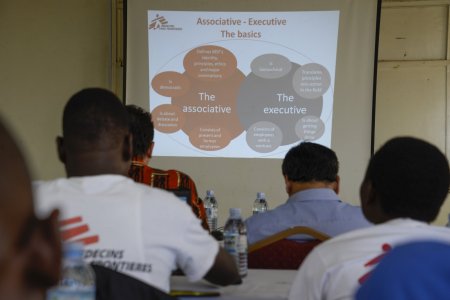 Aurélie Baumel
Interview
Aurélie Baumel
Interview
09/08/2020
Jean-Hervé Bradol
Interview by Helai Hosseini. A first version was published on the website of the MSF France association on 31 July 2020.
In the wake of the Black Lives Matter movement in the United States, voices have risen within MSF denouncing the racist and discriminatory nature of our organization. Equal opportunity, they say, is not offered to all our employees. Founded in France in the early 70s by a handful of doctors and journalists, the organization has grown and become international, now employing over 46,000 people around the world, nearly 39,000 of whom are recruited locally. How has MSF’s policy towards its personnel evolved down the years? What is currently being done to fight inequalities? Here is Jean Hervé Bradol’s take on the major phases that have marked MSF’s transformation and the ways in which discussions are engaged today.
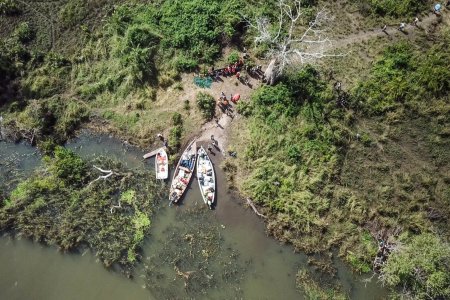 Giuseppe La Rosa/MSF
Interview
Giuseppe La Rosa/MSF
Interview
02/17/2012
Rony Brauman
In this interview conducted by Claudine Vidal in 2012 and published in the book Agir à Tout Prix (Humanitarian Negotiations Revealed: the MSF experience), Rony Brauman speaks about emergency humanitarian aid set up following natural disasters. Time constraints, access to victims, cooperation with local institutions, misleading representations of the disasters' effects, controversial assessments of the number of casualties; various topics related to these interventions are discussed and illustrated with specific examples.
 MSF/Rowan Pybus
Analysis
MSF/Rowan Pybus
Analysis
07/22/2020
Marc Le Pape
In France, from March onwards, many sociologists regularly appear in the media. Based on this observation, Marc Le Pape analysed 37 articles written during the containment period, dealing with the Covid-19 pandemic.
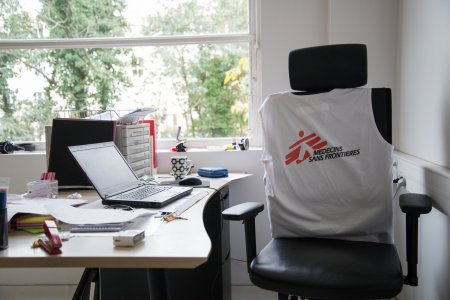 MSF/Antoine Kremer
Interview
MSF/Antoine Kremer
Interview
07/20/2020
Marion Péchayre
Elba Rahmouni
In our first interview, Marion Péchayre discussed a variety of management-related problems at Médecins Sans Frontières: working in silos, the ever-growing number of management tools for monitoring, the endless validation requests, the vanishing role of the individual in favour of pseudoscientific presentations of events and projects, etc. This interview, conducted by Elba Rahmouni, focuses on solutions to these problems and hypotheses on how to improve our ways of working. Rather than offering set recipes, Marion Péchayre advocates an approach based on “practical wisdom” (a concept from the sociology of professions) and deliberative management that every individual and team can apply in their own way.
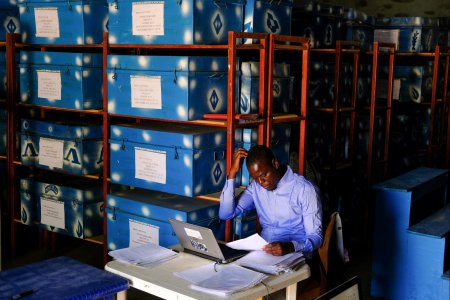 Eric Bouvet
Interview
Eric Bouvet
Interview
05/11/2020
Emmanuel Baron
Elba Rahmouni
Crisis situation, response strategies, hydroxychloroquine, interventional epidemiology and the state of scientific research in Africa: Elba Rahmouni interviews Emmanuel Baron, Director of Epicentre, Médecins Sans Frontières
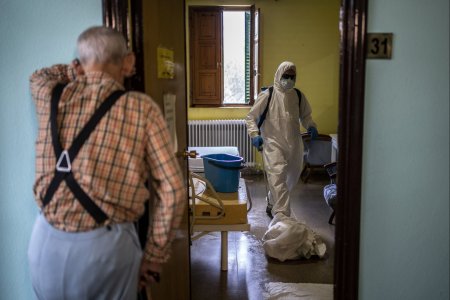 Olmo Calvo/MSF
Opinion
Olmo Calvo/MSF
Opinion
05/10/2020
Jean-Hervé Bradol
The biggest oversight in the response to this epidemic has been the EHPADs. For the staff, the directive was clear: continue to work and provide an alternative to hospitalisation. No matter the conditions. For the residents, it was to die alone without treatment to alleviate their suffering.
 Anonymous/Museo Che Guevara
Analysis
Anonymous/Museo Che Guevara
Analysis








